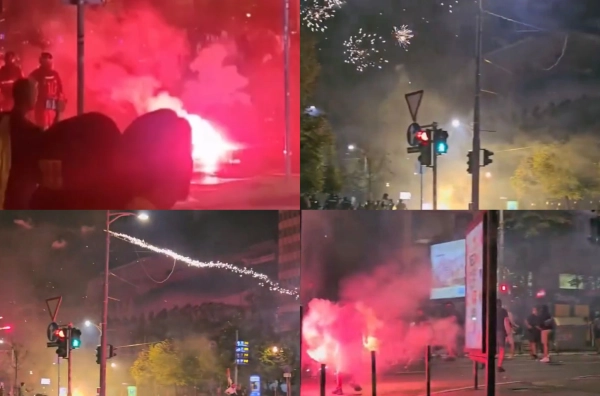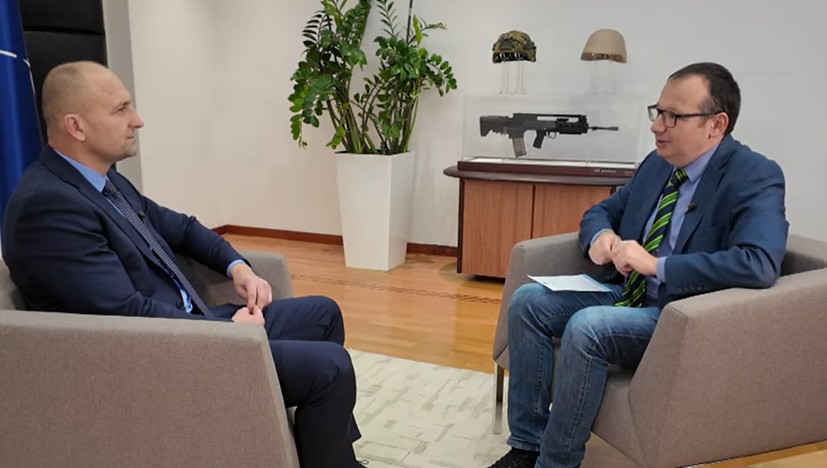Croatia is closely monitoring political instability in the Western Balkans and is taking steps to strengthen its military and security capabilities, Croatian Defence Minister Ivan Anušić said in an interview with BNT, citing lessons from past conflicts and ongoing regional tensions.
“Political instability and uncertainty are high across the Western Balkans,” the minister said, highlighting Bosnia and Herzegovina (BiH) and Kosovo as areas of particular concern. “We must strengthen and improve our capacities and be responsible to our citizens, the EU, and NATO.”
Referring to the Russian invasion of Ukraine, which has lasted three and a half years, he emphasized the importance of preparedness: “Before Russia invaded, no one believed it would happen. History teaches us that we must be ready for all challenges ahead.”
Bosnia and Herzegovina Under Pressure
Croatia views BiH as facing significant instability. The minister cited two main factors: the subordinate status of Croats in the tripartite presidency and the separatist tendencies of Serbian political actors in BiH, who challenge the Dayton Peace Agreement.
“Croats, numbering about 350,000 in BiH, do not have equal status with Bosniaks and Serbs. This creates persistent tensions and a lack of final peace,” he said, adding that renewed negotiations and reforms are necessary for BiH’s future and its EU integration prospects.
Kosovo also faces potential destabilization, he said, pointing to past Serbian provocations, including a terrorist attack in Banska in autumn 2023, and underscoring the importance of NATO’s KFOR presence.
Serbia’s Military Buildup
The minister expressed concern over Serbia’s arms acquisitions from France, Turkey, and other countries, noting that such spending, despite Serbia’s limited economy, signals a potential political agenda. “Croatia must remain strong and develop its defensive capabilities to deter threats,” he said.
On Russian influence, the minister said it is significant across the Balkans, especially via social media, misinformation, and targeted propaganda. He warned that hybrid warfare and disinformation campaigns threaten political stability in Croatia, Bulgaria, and across Europe.
“Disinformation is daily, pervasive, and dangerous. It can shape voter attitudes and empower political amateurs who could harm their countries,” he said, noting efforts to counter it through communication strategies and administrative measures.
Revival of Mandatory Military Service
Croatia is reintroducing compulsory military service, previously suspended in 2007. The minister said the move responds to regional insecurity and climate-related disasters, including floods, fires, and earthquakes. The program will include training in civil protection, survival skills, and basic military capabilities to prepare young men for reserve service.
Croatia is also investing in military modernization through the EU SAFE mechanism, acquiring Leopard tanks, Tatra military trucks, French Caesar howitzers, anti-drone systems, and fighter jets. The country is collaborating with Bulgaria, Poland, Germany, and France on these purchases.
Drones are a priority in Croatia’s defense strategy. The minister said FPV drones produced in Croatia are already exported, with over 200,000 units manufactured annually, and are critical for modern warfare, including in Ukraine.
Regional Defense Cooperation
Nine months ago, Croatia, Albania, and Kosovo signed a military cooperation agreement, described by the minister as non-binding and operational rather than a military pact. The agreement facilitates joint capability development, knowledge sharing, and industrial cooperation, including unmanned ground vehicles produced jointly with Slovenia.
Croatia invited Bulgaria to join the initiative, underscoring a vision for regional collaboration within NATO and EU frameworks.
Asked about a defense agreement between Hungary and Serbia, the minister described it as a political response to Croatia’s pact, adding it does not pose a direct threat. He noted potential Russian influence but refrained from attributing motivations to Moscow.
“Croatia will continue to cooperate with allies and remain open to partnerships that strengthen regional security and defense capabilities,” he said.



